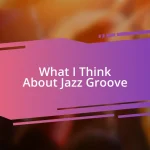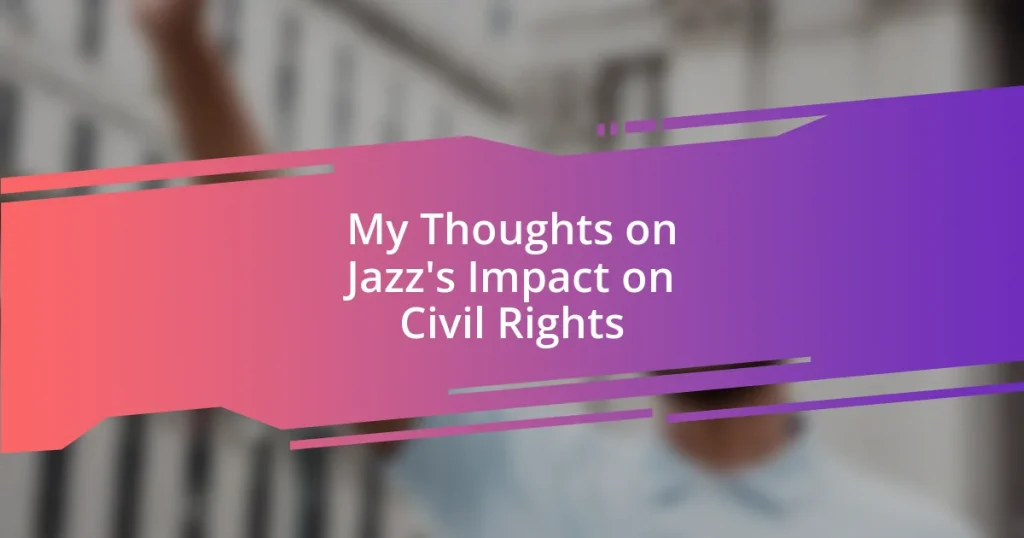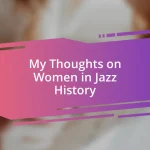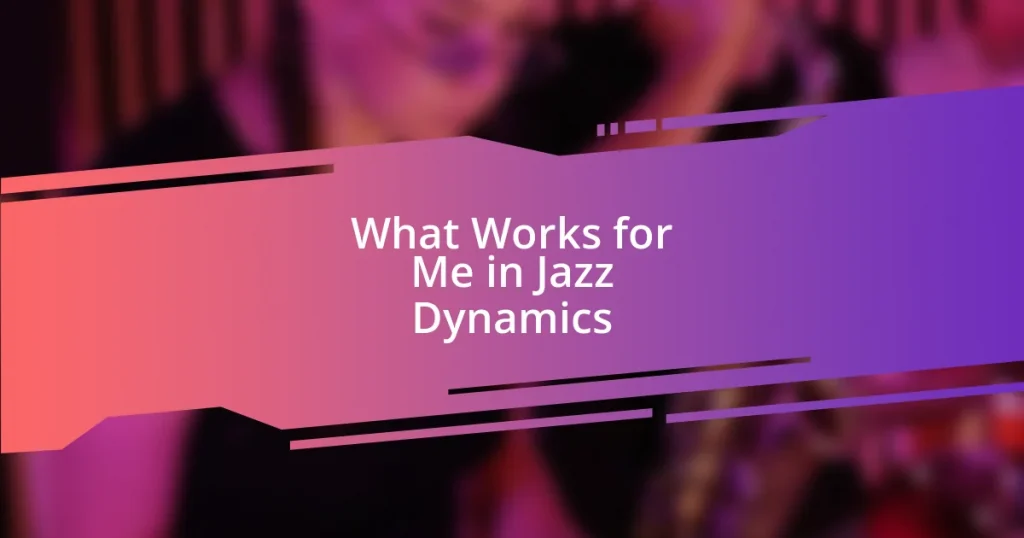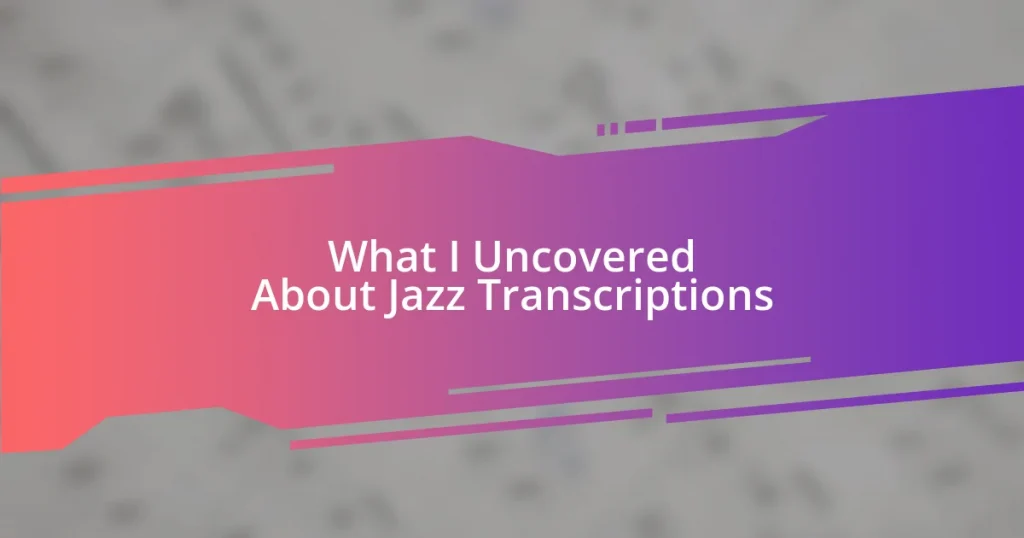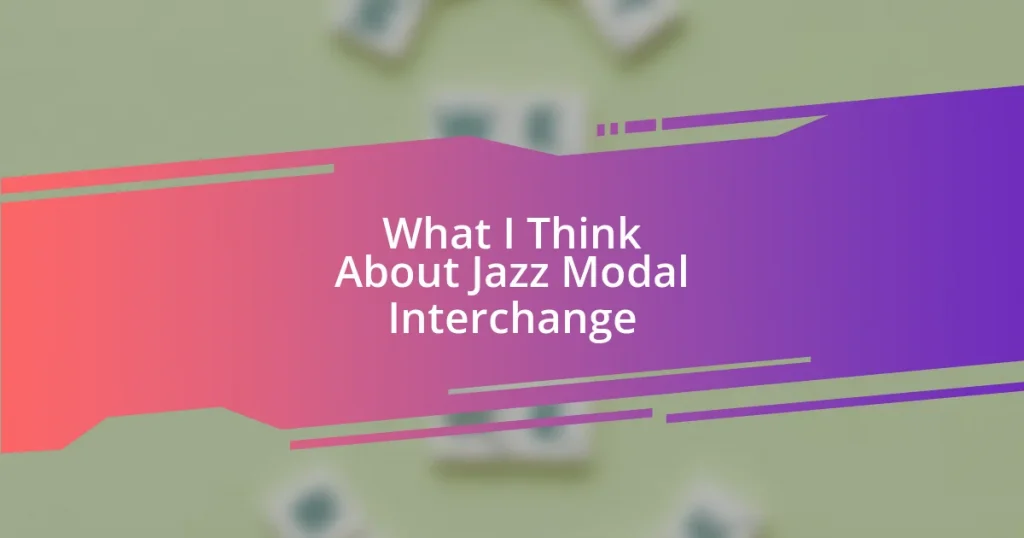Key takeaways:
- Jazz originated in New Orleans in the late 19th century, shaped by African, Caribbean, and European influences during the Great Migration.
- The genre became an emblem of the Civil Rights Movement, uniting communities and expressing struggles through music.
- Contemporary jazz artists continue to address social justice and identity, inspiring youth to use the genre as a platform for self-expression and resilience.
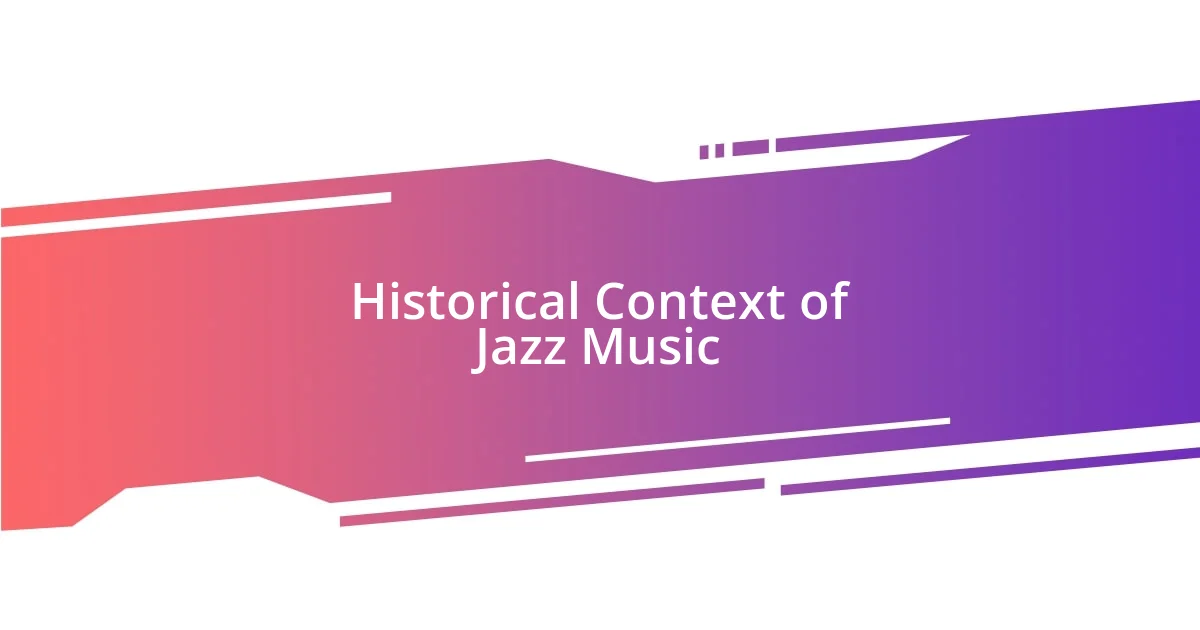
Historical Context of Jazz Music
Jazz music emerged in the late 19th and early 20th centuries, primarily in New Orleans. This vibrant city was a melting pot of cultures, where African, Caribbean, and European influences coalesced into a new sound. I often find myself contemplating how the rhythm of the streets infused the music with life, creating something entirely unique and deeply rooted in history.
During the early 1900s, jazz evolved alongside the Great Migration, when many African Americans moved from the rural South to urban centers in search of economic opportunities. Picture that—people departing from familiar places, bringing their cultural heritage while embracing new influences. This dynamic contributed to the development of jazz as an art form that reflected both pain and hope, resonating with those who sought freedom and identity.
The cultural significance of jazz can’t be overstated; it became a vehicle for social change and a symbol of the Civil Rights Movement. I remember hearing stories from older generations about how jazz provided a sense of community and shared experience during turbulent times. Isn’t it remarkable how music can unite people across divides, expressing their struggles and aspirations in a way that words sometimes cannot?
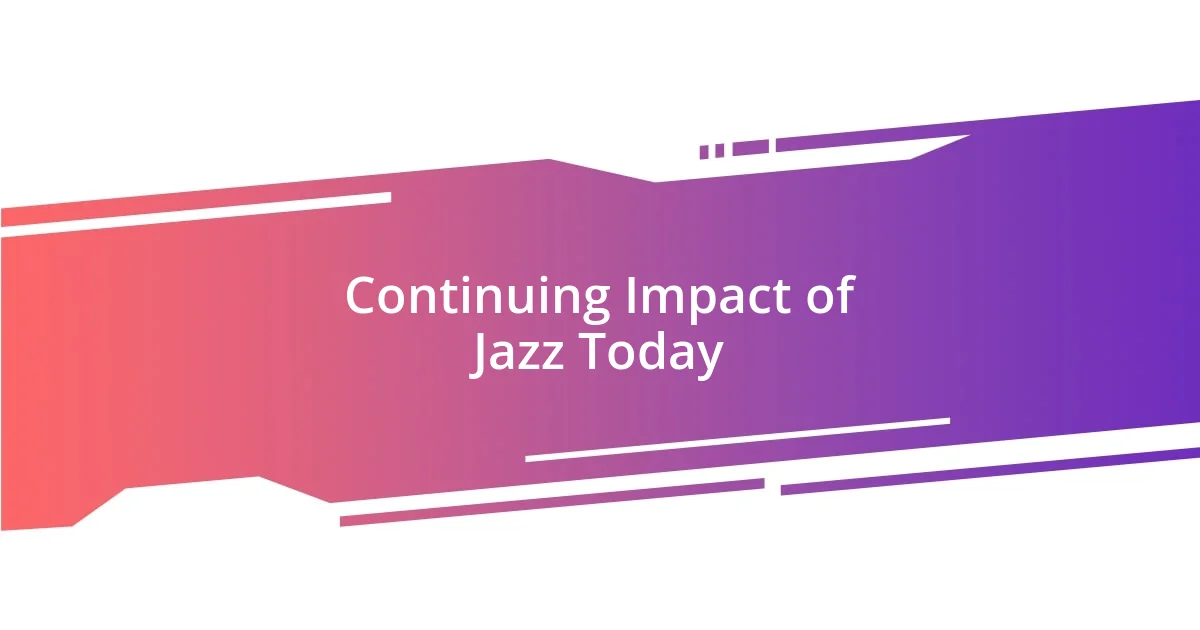
Continuing Impact of Jazz Today
Jazz continues to shape cultural discussions today, especially in how it addresses social justice and identity. When I listen to contemporary jazz musicians like Kamasi Washington or Esperanza Spalding, I hear not just music but a conversation about modern struggles. It’s fascinating to think about how they weave themes of equality and resistance into their performances, inviting us to reflect on the world we live in.
I recall attending a local jazz festival where artists from diverse backgrounds collaborated on stage, blending styles that spanned generations. The air was charged with an unspoken understanding; each note seemed to echo the fight for equality. That moment reminded me that jazz isn’t just a genre—it’s a living testament to resilience and innovation in the face of adversity.
The educational initiatives stem from jazz’s legacy and inspire new generations to explore their voices and stories. I’ve seen young musicians use jazz as a platform to share their own experiences, tackling issues like race and inequality. Isn’t it powerful how a genre that once symbolized struggle can now foster hope and self-expression, tracing the legacy of those who came before them?



